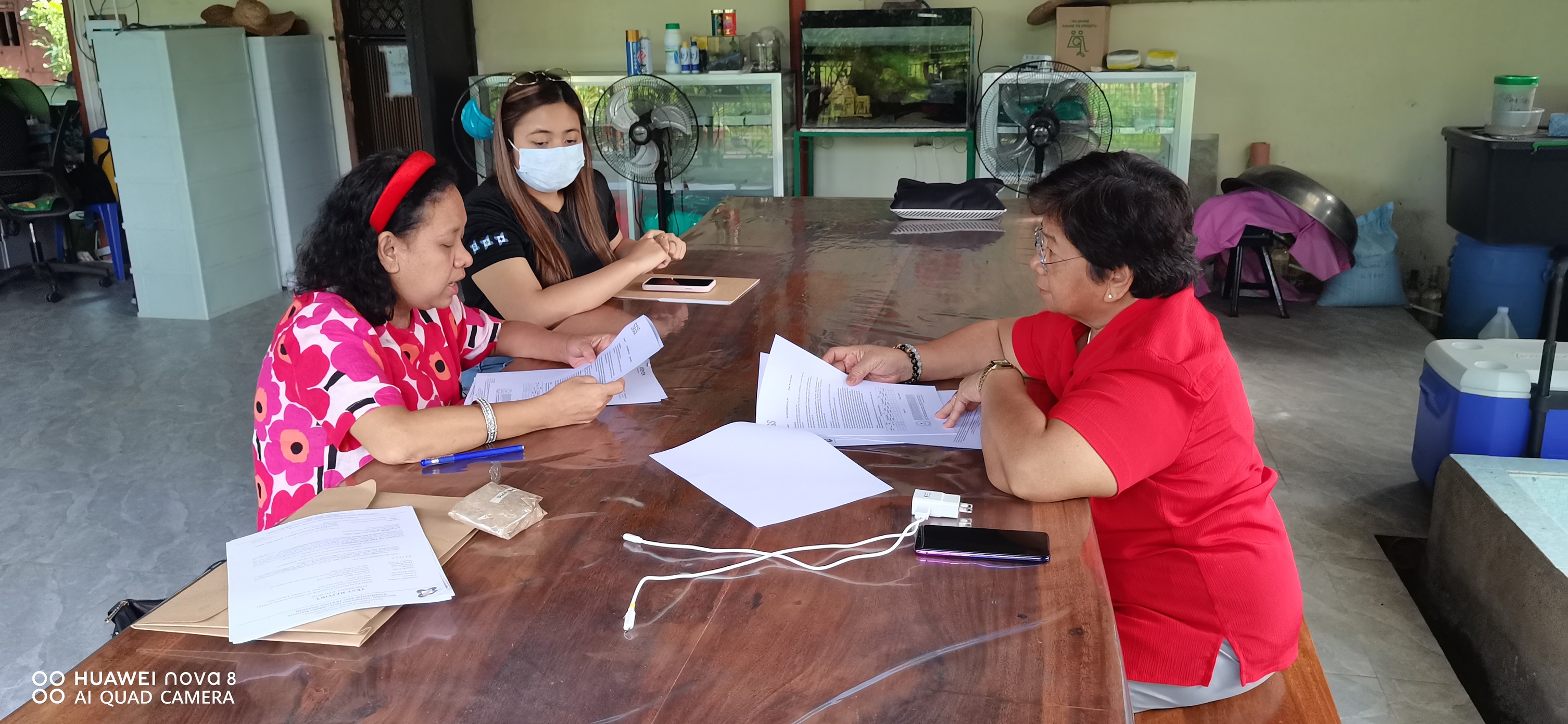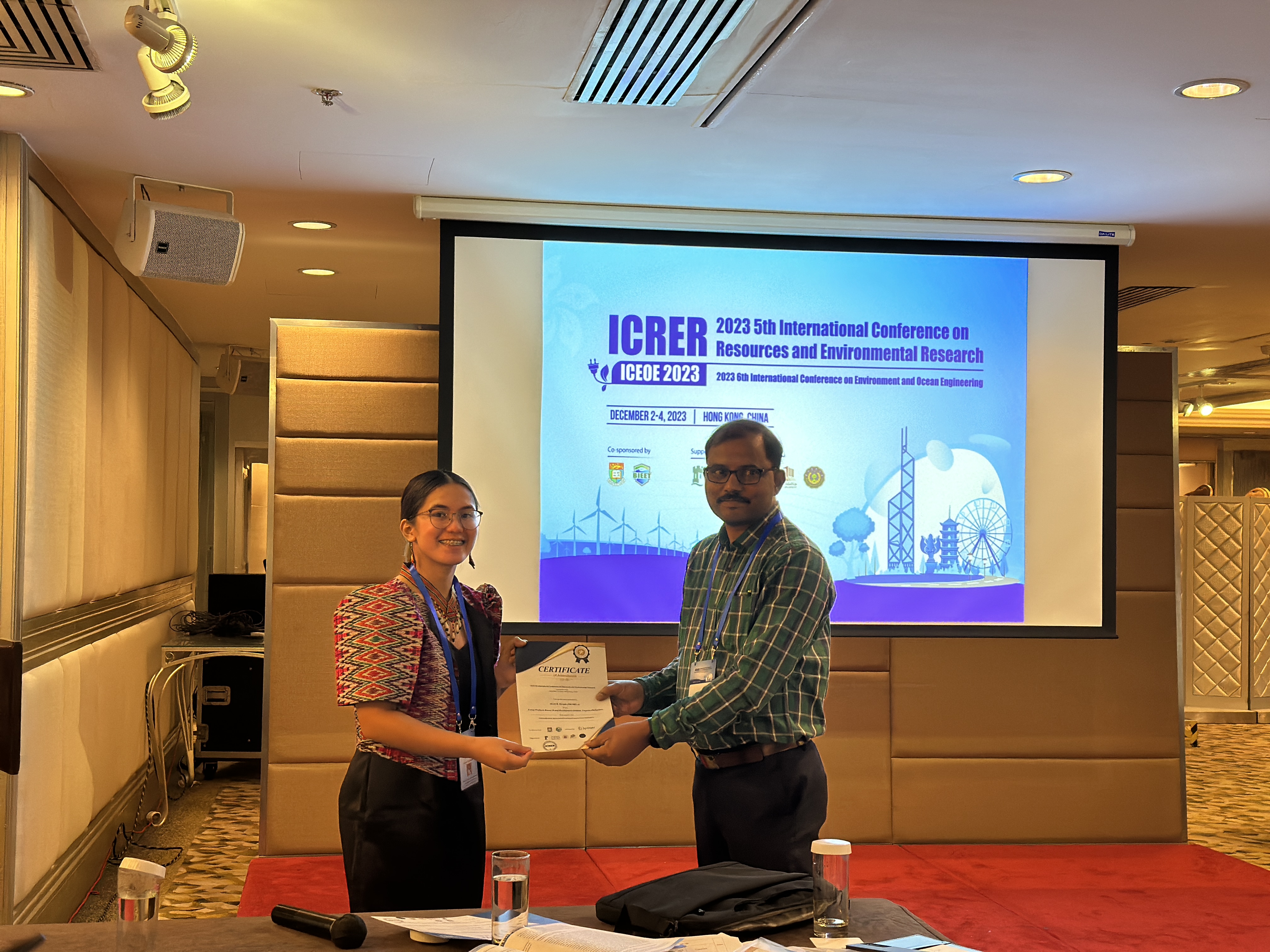DOST-FPRDI ensures client’s growth thru piloting, business incubation
- Details
Staff of the DOST-Forest Products Research and Development Institute (DOST-FPRDI) recently extended technical assistance to a Laguna-based agro-forest farm.
The Adoress Farm is an incubatee of a collaboration between Laguna State Polytechnic University (LSPU) and DOST-FPRDI. It is being assisted in the production of hand soaps made from natural materials thru DOST-FPRDI’s Technology Business Incubation (TBI) Program and Piloting of Select FPRDI Technologies Project.
During the visit, DOST-FPRDI expert Dr. Jennifer P. Tamayo shared promising results of the antimicrobial and dermal irritation tests on the soap. Antimicrobial test evaluates the efficacy of the soap in killing microorganisms, while the dermal irritation test gauges tolerable level of skin irritation when using it.
The Institute’s TBI is a facility that provides needed assistance to start-ups in the forest-based sector. Interested clients may avail themselves of its forest products processing technologies, and also business development, training, and testing services, among others.
Meanwhile, the Technology Piloting project examines the technical and market potential of select DOST-FPRDI technologies under user-environment conditions. Both TBI and Technology Piloting are under the Institute’s Technical Services Division.

Adoress Farm owner Ms. Teresita Sanchez (in red) actively participates in the monitoring and assessment activities by sharing updates about their product
National University of Singapore students visit DOST-FPRDI
- Details
A group of students from the National University of Singapore (NUS) visited the DOST-Forest Products Research and Development Institute (DOST-FPRDI) last 5 January 2024 to learn and talk about possible collaborations involving the Institute’s Bamboo Musical Instruments (BMI) Innovation R&D Program.
The trip was part of their academic course that requires students to craft and implement capstone projects that will “promote positive social impact to a community in need.” Focusing on the Arts and Design cluster, the students are exploring the possibility of training out-of-school youth on BMI making.
The students were met by DOST-FPRDI OIC-Director Dr. Rico J. Cabangon, BMI Program Leader For. Aralyn L. Quintos, and Technical Services Division’s For. Zenaida R. Reyes.

NUS students meet DOST-FPRDI team led by OIC Director Dr. Rico J. Cabangon (center, in dark blue jacket).
DOST-FPRDI staff shine in international research conferences
- Details
Two DOST-Forest Products Research and Development Institute (DOST-FPRDI) researchers have won major awards in international conferences held recently.
Technology Innovation Division’s Alexis B. Dorado bagged the Best Research Paper Presentation in the 2023 International Conference on Resources and Environmental Research (ICRER) held at Hong Kong, China from 2-4 December 2023.
Dorado presented the paper titled "Sustainable Wood Stain Derived from Natural Dyes for Green Applications" that details how Philippine natural dyes can become a viable and eco-friendly alternative to primary colorants in wood stain formulations. She won under the "Wastewater, Oil Pollution and Green Technology” category.











